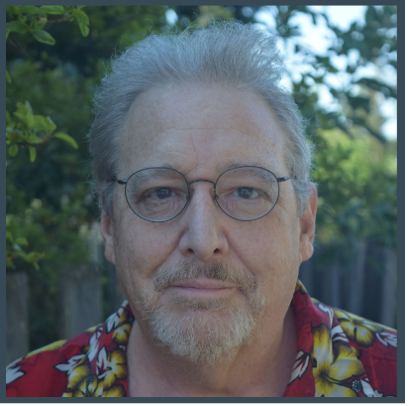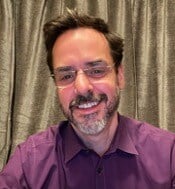 Chris Gatewood was born and raised in Ashland, Virginia, where he says he drank only two times before college. In college, however, he slid into a kind of “this is what you do” pattern of heavy drinking and things didn’t go well. He ended up dropping out and moving to Blacksburg.
Chris Gatewood was born and raised in Ashland, Virginia, where he says he drank only two times before college. In college, however, he slid into a kind of “this is what you do” pattern of heavy drinking and things didn’t go well. He ended up dropping out and moving to Blacksburg.
In Blacksburg, Chris fell into another negative pattern of drinking a lot of alcohol and not bothering to eat. This wreaked havoc on his stomach, and he ended up in the hospital after vomiting blood. But it wasn’t just the physical problems that sounded the wake-up call for him. It was also the fact that, as he lay there in the hospital, nobody came to visit. “I had pushed everybody who cared about me out of my life.” This brutal realization led to his deciding to get help. Now, 10 years later, he helps others who are headed down that lonely path themselves.
Chris’ journey began with attending 12-Step meetings while on a wait list to start Intensive Outpatient Treatment (IOP). By nature a curious person who constantly tries to understand the world around him, he had questions when it came to the 12-Step approach. At one point, someone remarked that maybe he was “too smart for this program.” Chris persisted and stayed true to his goal of recovery. He decided he wanted to dedicate his life to helping others who faced substance use challenges and went back to college.
It was during his coursework that he first came across SMART Recovery, but in an odd way. He found a brief reference to SMART in a textbook that noted the program considered itself a “cure” and was “anti-religion.” Fortunately, Chris didn’t accept that at face value and decided to research SMART on his own, eventually finding that neither of those broad statements were true.
He attended SMART meetings and found the science-based approach refreshing and different by virtue of its Cognitive Behavioral Therapy (CBT) roots. One of the things Chris appreciates most about SMART is that the focus is on all the issues that people are facing, not one particular substance or behavior. SMART doesn’t define people as one thing only and provides space for people to connect and grow. “This is the springboard for what we want to do with our lives,” he says.
At the same time he embraced SMART, Chris never saw a reason to diminish the value of other pathways to recovery. “Just because someone is on a different pathway doesn’t mean they are your enemy.” He says that any schism between 12-Step programs and SMART doesn’t need to be there because the important thing is that people are seeking to improve their lives by understanding more about who they are.
Chris completed his master’s degree at Virginia Commonwealth University in 2020 and became a Certified Substance Abuse Counselor. He decided to take his SMART involvement further by completing facilitator training, and he uses SMART as part of his professional life. Eventually he became a SMART Regional Coordinator to support other facilitators in Virginia.
Ultimately, Chris believes that people will get the most from SMART if they follow one simple piece of advice. “Go into it with an open mind.” Chris is a prime example of how that works.




